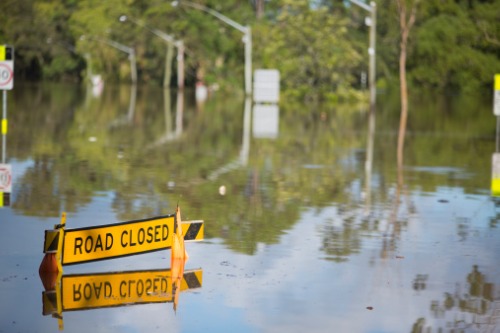

Climate change and severe weather events have grown rapidly into some of the most concerning trends impacting Canadian companies. Corporate directors are under enormous amounts of pressure to consider, manage, and report on climate-related financial risks and opportunities. They’re subject to increasingly rigorous regulation and stringent public scrutiny, with the nagging reminder that if they get something wrong, they could lose vast amounts of money.
Some things are out of everybody’s control. Acute weather events like the 2013 Calgary flooding and the 2016 Fort McMurray wildfires cannot be stopped. In fact, as the climate changes, there’s a greater possibility of severe events coming about with more frequency. When faced with such an undeniable foe, Canadian companies can manage and mitigate the impact of climate-related financial risks through better corporate governance and enterprise risk management.
This is where the Canada Climate Law Initiative comes in. It’s a cross-disciplinary research initiative run by principal investigators Dr. Janis Sarra, from the Peter A. Allard School of Law, University of British Columbia, and Professor Cynthia Williams, of the Osgoode Hall Law School, York University, which examines the legal basis for corporate entities to mobilize around climate change. Within the initiative sits the Canadian Climate Governance Experts program, through which 54 experts from a range of sectors, including insurance, offer free sessions on effective corporate governance to address climate-related financial risks. The program is available to insurance companies and to insurers’ corporate clients.
Read next: The other side of climate change
According to Dr Sarra, there are three key areas where Canadian companies can exercise better corporate governance and enterprise risk management in relation to climate change.
“On the physical risk side, most companies are thinking about: ‘If my factory floods, what’s going to happen? If there’s a fire in the area, what’s going to happen?’ But what we’re discovering is that there are a lot of indirect financial issues for businesses as a result of climate change,” she said. “The question becomes: ‘If my supply chain dries up because I’m reliant on X ingredient that comes from a country that is experiencing devastating climate impacts, what will that do to my ability to source raw supplies at a reasonable price?’ I believe there needs to be better insurance coverage for what I call the indirect impacts of these acute and chronic events.
“Businesses also need to be thinking about whether they need insurance for transition risks. This is a live question, but can insurance be responsive to changes in regulatory policy that create an unexpected cost to the business? Is there insurance available that will act as a shock absorber for those transitions? That’s an area that is just beginning to grow and hasn’t really matured yet in terms of the kinds of products that might be available. It’s something for companies to think about and to consider with their broker and insurer partners.”
A third area that corporate entities need to think about is liability risk in relation to climate change, according to Dr. Sarra. There are currently around 1,300 to 1,600 lawsuits in progress globally (most of them in the US) against directors and officers under securities law, nuisance law and tort law for failure to pay attention to climate-related financial risk. That could be anything from failing to manage their risk properly to failing to purchase adequate insurance. While Canada is lucky in that it’s nowhere near as litigious as the US, the country will likely see heightened litigation with the occurrence of more acute weather events.
“Insurance brokers should be alerting directors and officers to this and encouraging them to consider whether they need some better insurance around these issues,” Dr. Sarra told Insurance Business. “Also, brokers can encourage clients to engage in proactive management to reduce risk, to think seriously about what the various risks are, and to make sure that the managing or oversight of those risks is embedded in the business plan, the budget and the insurance costs.”
If corporate entities fail to adopt better corporate governance practices, the insurance industry could find itself on the hook for more claims. So far, the property and casualty sector has felt the brunt of climate-related losses, primarily due to events like fire, hail and flooding. In fact, flooding now accounts for approximately 50% of all P&C claims in Canada, so it’s a huge price ticket for the sector, and one that the industry is actively trying to reduce.
“The question is: Who bears the entire [financial] burden of what’s happening? And is there some way that the insurance industry could work with the government to come up with some creative ways of covering off the most egregious and acute events? I think that collaboration could be of assistance,” said Dr. Sarra. “There are examples of places in other countries – take New Orleans in the US – where they barely seem to recover from one catastrophic weather event before another one hits. There’s some information out there that says people are insuring less because they’re struggling to recover from one crisis to the next.
“On the acute event side, I think policymakers need to engage more with the insurance sector to work out where there are coverage gaps, what solutions are needed, and whether there should be some sort of national protection fund like the Compensation Fund, which protects life insurance policyholders if life insurers go under. Do we need something like that federally, which recognizes that the acute events are going to continue? Rather than deal with catastrophic weather events on a haphazard basis depending on who’s got the most compelling case for some sort of emergency relief, do we need a more systematic strategy? If so, that would require the sector working with policymakers.”
These sorts of macro questions are all things that Dr. Sarra and the rest of the team are researching at the Canada Climate Law Initiative. Canadian companies can tap into their expertise by reaching out and organizing a free consultation.
